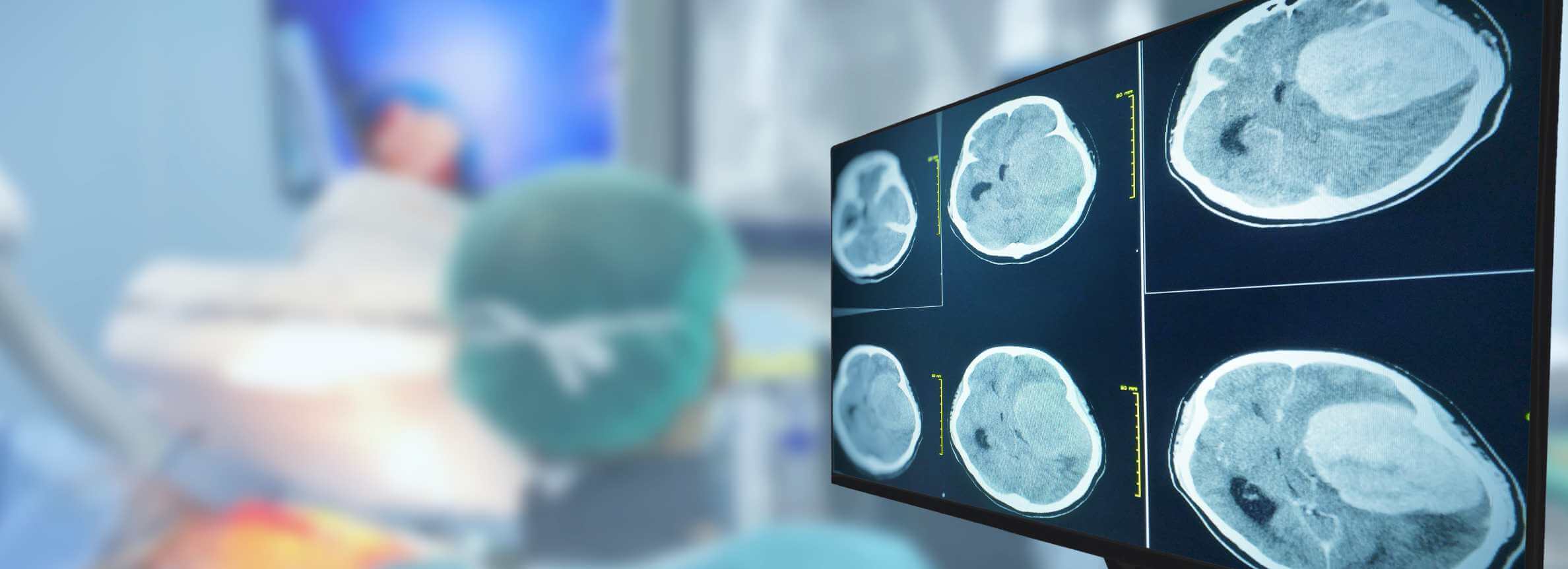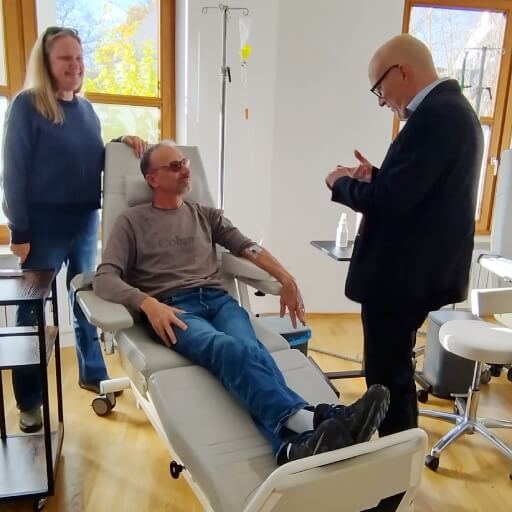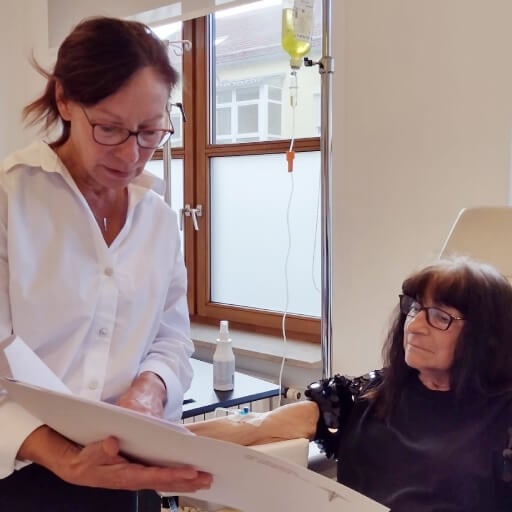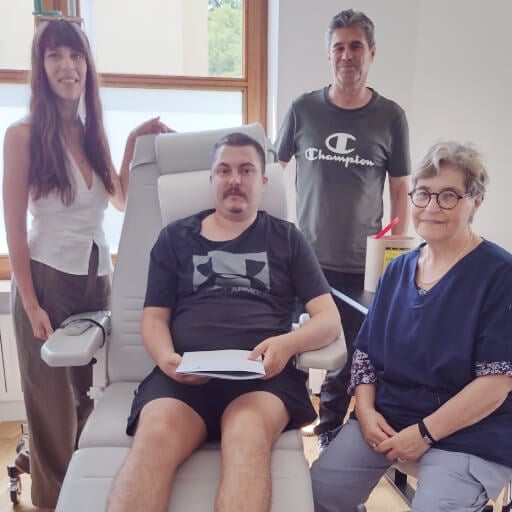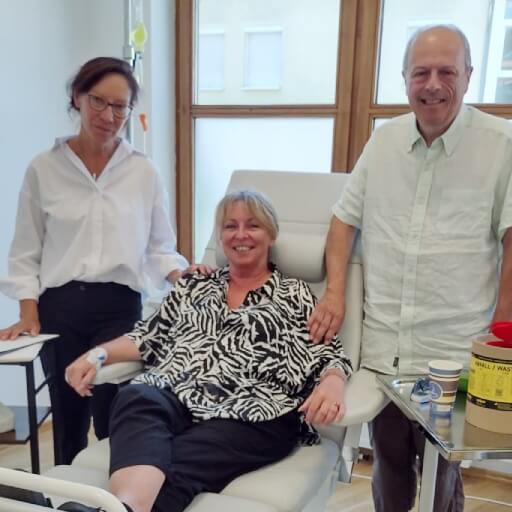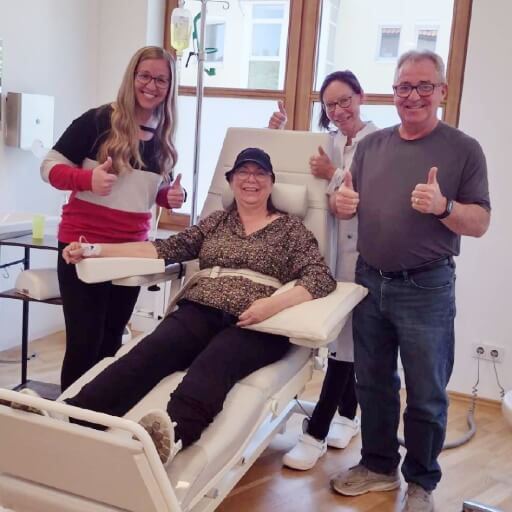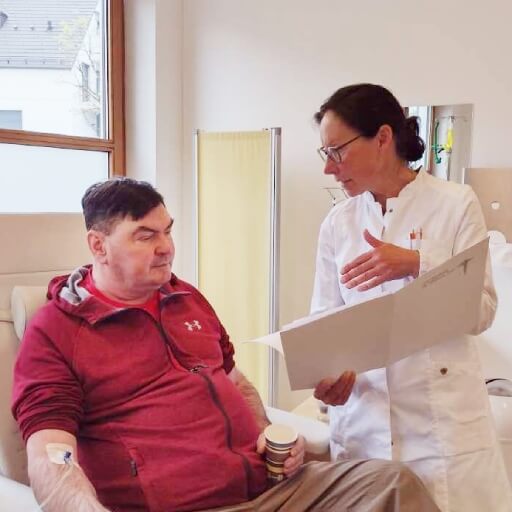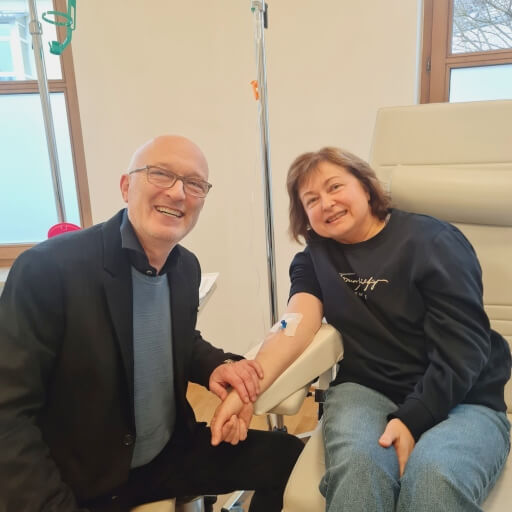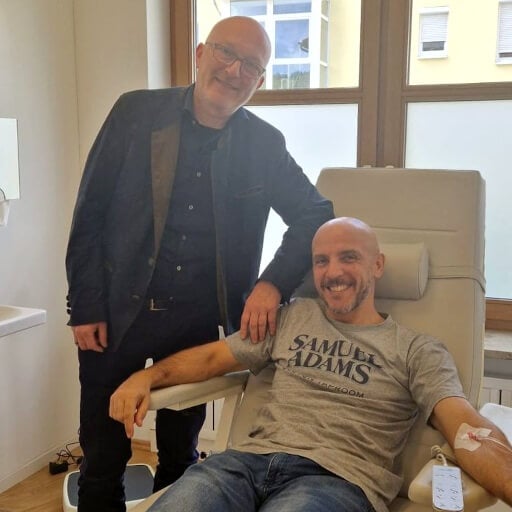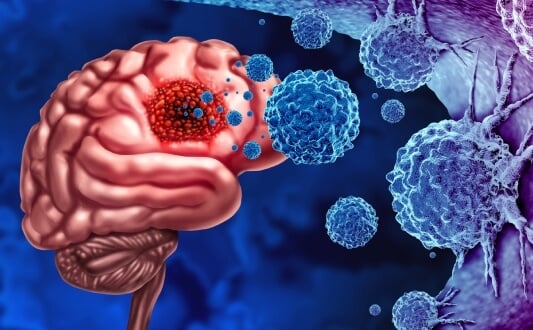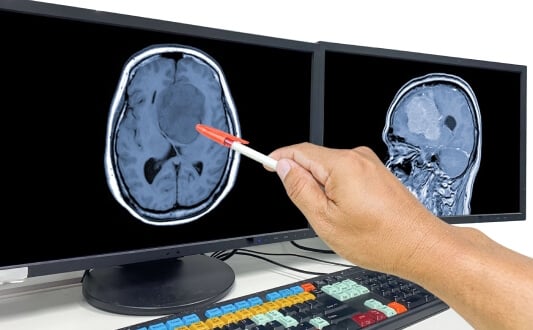Standard therapy for glioblastoma is the combination of surgical removal of the tumor, chemotherapy / radiation therapy. Average life expectancy after diagnosis with standard treatment of glioblastoma is 15-17 months, and the 5-year survival rate does not exceed 5-10% [1]. Supplementing the standard protocol with the dendritic cell vaccine is the most promising approach, the effectiveness of which exceeds all therapies currently used in neurooncology [2]. According to the results of clinical trials, 60% of patients who received immunotherapy treatment live longer than the average expected period, and approximately one-third of patients are completely cured. You can undergo treatment with dendritic cells in Germany. The Booking Health website has a comprehensive list of specialized clinics, prices for medical services, and approximate admission dates for dendritic cell vaccination.
Comparison of Glioblastoma Treatment Approaches
Glioblastoma patients and their families have to navigate complex treatment decisions – the therapeutic regimen chosen can significantly impact survival. Thus, understanding the differences between conventional and innovative therapies like dendritic cells in Germany gives a chance to make informed choices.
What’s in The Conventional Protocol for Glioblastoma?
With brain tumors, traditional approaches begin with a surgical intervention [3]. Beyond all doubt, advanced imaging guidance and mapping techniques help preserve brain functions. Nevertheless, surgery faces a fundamental challenge: GBM tumor cells are surrounded by infiltrating cancer cells. This often makes complete removal impossible. Some tumor cells remain behind even with the most skilled surgical team. This potentially leads to brain tumor recurrence.
After the surgical intervention patients typically undergo radiation therapy. It is delivered in carefully measured doses, over several weeks [4]. Radiation is suggested to effectively damage cancer cells, but it also affects healthy brain tissue. Thus, a delicate balance between treatment effectiveness and side effects is a necessity. The standard protocol of 10 to 30 treatments can be physically and emotionally demanding for patients. Similarly, chemotherapy, while standard practice, faces a significant obstacle in the blood-brain barrier and is connected with severe side effects.
Enhancing The Glioblastoma Protocol With Dendritic Cell Vaccines
Dendritic cell therapy for glioblastoma emerges as a groundbreaking alternative. Overwhelming, but the discovery of dendritic cells earned American scientist Ralph Steinman the Nobel Prize in Medicine in 2011 [5].
Dendritic cell vaccination uses the immune cells, which act as the "officers" of the patient's immune system. These cells are specially processed in the laboratory to recognize and target brain tumor cells, offering several distinct advantages over conventional treatment of glioblastoma:
- Precision targeting. Traditional treatment of glioblastoma can damage healthy tissue. Dendritic cell-based medications harness the patient's immune system to target cancer cells due to their specific tumor antigens – no collateral damage to healthy brain tissue.
- Adaptive response. Dendritic brain tumor vaccines create a dynamic immune response that can adapt to mutations in the tumor antigens, potentially addressing the challenge of tumor cells’ evolution that often leads to a lack of response to conventional methods.
- Long-term protection. While traditional treatments work only during their administration, dendritic vaccines offer longer-term protection against recurrence.
- Minimal side effects. Dendritic vaccines show excellent tolerability – patients maintain a better quality of life during the treatment of glioblastoma.
- Crossing the blood-brain barrier. A substantial drawback is that chemotherapy drugs are stopped by the blood-brain barrier. Activated by dendritic vaccines immune cells are suggested to naturally traverse it and reach brain tumor cells.
Clinical Trials on Dendritic Cell Vaccines for GBM
The first Phase III controlled report from a landmark study that was published in Translational Cancer Research showes improved overall survival in glioblastoma patients using dendritic cell vaccination. The study revealed a particularly strong immune response in patients with MGMT promoter-methylated GBM, demonstrating a significant reduction in mortality risk compared to standard treatment of glioblastoma.
Most notably, when dendritic cell vaccination was combined with tumor treating fields (TTF) in relapsed patients, outcomes were especially promising, suggesting the potential for even greater effectiveness when used as part of a comprehensive treatment strategy. [2]
Practical Applications of Dendritic Cell Vaccines for GBM
Professor Frank Gansauge shares his expert perspective, drawing from over 22 years of experience in immunotherapy. This allows us to understand better dendritic cell vaccination and its applications in the treatment of glioblastoma.
His clinic has been at the forefront of developing and implementing dendritic cell treatments. Actually, he investigated peculiarities of the immune response in various types of cancer, including glioblastoma.
Prof. Gansauge's clinical experience in treatment with dendritic cells in Germany demonstrates its effectiveness with measurable results. His approach uses fresh, unfrozen dendritic cell vaccines. This maintains optimal cellular function and allows for targeting actual tumor antigens – distinguishing his method from clinics that freeze and store cells. Patients can see clear outcomes through MRI or CT scans. Scans may reveal shrinkage of glioblastoma cells, stabilization, or complete response to treatment.
Prof. Frank Gansauge's Revolutionary Approach: Combining Classical Treatments and Dendritic Cell Therapy For Cancer
Who is eligible for the treatment of glioblastoma with dendritic cells
The use of dendritic cell vaccines in the treatment of glioblastoma is a part of a comprehensive therapeutic regimen, but not a sole and independent technique. In most cases, it is carried out:
- After the surgical tumor removal, sometimes also after the completion of the postoperative chemotherapy. This is the best treatment option: during surgery, the doctor removes malignant tissue from the brain as much as possible, and dendritic cell vaccination stimulates an anti-cancer immune response and prevents recurrence in the future. Another advantage of this option is the ability to use the removed tumor cells for manufacturing an individual cancer vaccine.
- In case of the glioblastoma recurrence after successful completion of the initial treatment. In this clinical situation, doctors may repeat the surgical treatment of glioblastoma or go straight to systemic therapies, such as chemotherapy and immunotherapy with dendritic cells. In the second case, tumor cells’ DNA is received through the novel method of liquid biopsy, or standard tumor antigens are used to make dendritic cell vaccines (these are proteins that are present in the tumors of all patients).
The course of immunization for glioblastoma involves the introduction of the vaccine right after surgery to boost the lifelong immune response. The procedure does not require admission to the hospital; it is performed on an outpatient basis or in a day hospital.
During the entire course of treatment of glioblastoma, the patient remains under the supervision of a general practitioner, neurologist, and oncologist. In addition to clinical examinations, imaging diagnostics may be required – in this case, computed tomography (CT) is performed.
As for experience in administering the glioblastoma vaccine, Germany currently has limited data in children. Doctors are conducting additional clinical studies to more accurately assess the safety and success rates of this type of treatment in pediatrics.
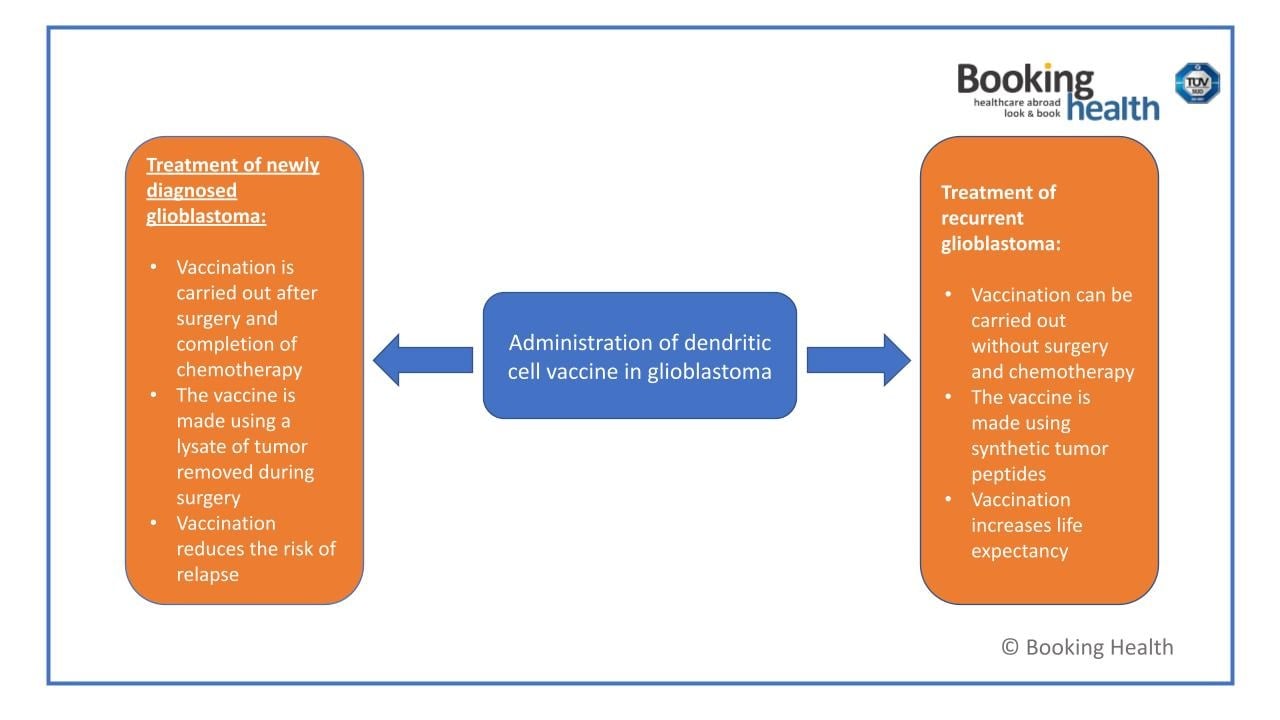
Step-by-Step Process of Dendritic Cell Therapy for Glioblastoma
Treatment of glioblastoma in Germany follows a precise protocol. It is divided into six main stages:
- Everything starts with a consultation at the clinic. You speak with a doctor who will perform a complete examination and order laboratory tests. Results are a baseline for your treatment of glioblastoma monitoring.
- The second step is a minimally invasive intervention. That is, a small amount of blood is collected from your peripheral vein – about 150-200 ml. The procedure is quick and painless. Actually, you can return to your normal activities immediately after.
- Your blood cells undergo laboratory processing in a GMP-certified laboratory – under strict European quality standards. The lab specialists separate blood components and isolate specific immune cells (monocytes) needed for the vaccine. Processing techniques make ot possible to obtain sufficient cellular material even from a few hundreds of blood ml.
- The dendritic vaccine creation stage involves training dendritic cells to recognize and fight cancer cells. The specialists carry out a liquid biopsy to find components of brain cancer cells in blood, use standard glioblastoma cells’ antigens, or fragments of the removed tumor tissue. The method is chosen based on your specific case, while finding fresh components of cancer cells in blood is typically the best option.
- The personalized vaccine administration. The vaccine is administered intradermally or subcutaneously – all on an outpatient basis.
You receive ongoing monitoring from a medical team throughout your treatment. Clinical examinations with imaging diagnostics are suggested to track your immune response. According to the results, doctors adjust the treatment plan as needed.
Results of DC therapy for glioblastoma
With standard treatment, the average life expectancy after diagnosing glioblastoma is 15-17 months – and the 5-year survival rate does not exceed 5-10%. Clinical studies demonstrate that after dendritic cell vaccination, 60% of patients live longer than the average expected time, and every third patient is completely cured. Given the excellent tolerability of the drug, dendritic cell vaccination is indicated for almost all people with glioblastoma as an additional treatment method.
The main practical results of the dendritic cell vaccine administration:
- Prevention of glioblastoma recurrence after surgical removal of the primary tumor and a course of chemotherapy. During the operation, the surgeon cannot distinguish microscopic tumor metastases from healthy tissues, so some of the malignant cells remain in the body. Chemotherapy, which is used to suppress these cells, acts only during the course of treatment. Enhancing this standard regimen with GBM immunotherapy makes it possible to create a stable anti-cancer immune response that will control the development of new cancer cells for months and destroy them.
- Treatment of recurrent tumors. In many cases, people with recurrent glioblastoma are not candidates for surgical treatment. Also, recurrent tumors are often resistant to chemotherapy. In such cases, GBM immunotherapy using dendritic cells can inhibit the growth of the primary tumor and its metastases. [6]
GBM immunotherapy demonstrates excellent results; that is due to the ability of immune cells to freely move into the brain tissue and destroy cancer cells. Where surgical intervention is associated with a high risks, and chemotherapeutic drugs are unable to cross the blood-brain barrier – dendritic cell vaccination is still effective.
As for the dendritic cell therapy cost, it ranges from 20,000 to 38,000 euros, depending on the combination of additional services included in the program.
From Diagnosis to Hope: Glioblastoma Patient Testimonials
The true measure of any medical treatment – the experiences of those who have undergone it. You will see two stories from patients who received dendritic cell therapy for glioblastoma.
The Story of Daria Rogers
In January 2024, Daria Rogers was diagnosed with GBM. Together with her husband Maurice, they actively sought alternative brain cancer treatments – eventually discovering therapy with dendritic cells in Germany. Their decision to start treatment abroad led to remarkable results just three months after therapy.
Actually, Daria's tumor was successfully removed surgically, but that still was glioblastoma type 4. Doctors in Ireland gave her the standard prognosis of 12-15 months to live. That is why Maurice researched international options – and found treatment with dendritic cells in Germany through Booking Health's medical tourism service.
The couple travelled to Germany just three weeks after Daria's surgery. That was essential: prof. Gansauge emphasizes that earlier intervention better stimulates immune system. Daria underwent the dendritic cell procedure and what followed exceeded their expectations.
Daria tolerated her subsequent chemotherapy and radiation treatments remarkably well, maintaining energy levels throughout the demanding regimen. "I had energy to go to the clinic 5 days a week and actually tolerate the treatment without any major side effects," she recalls. Most significantly, her three-month post-treatment MRI scan showed complete clearance of cancer cells – an outcome rarely seen with standard treatments alone.
The positive results due to the work of the immune system continued. Follow-up scans, including one nearly a year after diagnosis, remained crystal clear with no evidence of cancer recurrence. Maurice notes an unexpected benefit: "I noticed a very obvious de-aging effect. Daria looked fresh and genuinely had de-aged, considering she was in the middle of chemotherapy and radiotherapy."
Daria's experience offers hope to other patients facing similar diagnoses. Her advice emphasizes urgency: "Go early, go very quickly. Don't lose hope, don't give up. There are treatments available now that are very different than three to five years ago."
Daria Rogers from Ireland: "Dendritic Cell Therapy Gave Me Hope"
Modern Cancer Treatment: Dendritic Cell Therapy with Booking Health
Undergoing vaccination with dendritic cells for glioblastoma in Germany
Treatment with dendritic cells in Germany – a leading destination with comprehensive support for international patients. The country's advanced medical infrastructure provides access to this innovative treatment option.
Specialized Healthcare Facilities That Offer DC Vaccination
Treating glioblastoma with dendritic cells in Germany potentially provides benefits through immune system stimulation. This innovative treatment stimulates natural immune response by activating dendritic cells that recognize and target tumor cells.
Leaders in brain cancer treatment with dendritic cells in Germany are LDG – Laboratories Dr. Gansauge (pioneer in this field), Praxisgemeinschaft für Zelltherapie Duderstadt GmbH & Co. KG, IOZK Immuno-Oncology Center in Cologne.
Treatment of glioblastoma with dendritic cells has not been included in the standard therapeutic protocol yet. The use of this method is limited due to the lack of skilled healthcare professionals and the lack of equipment for manufacturing vaccines in hospitals. If doctors in your country are not ready to offer you this effective type of treatment – contact one of the specialized German clinics. Doctors in Germany offer patients with glioblastoma both complex treatment (surgery, chemotherapy, immunotherapy, etc.) and post-op dendritic cell vaccination.
Going to The Foreign Hospital With Confidence
Navigating international healthcare requires careful planning and reliable support. Professional medical coordination services can significantly ease this process.
Booking Health, with over 12 years of experience in medical tourism, understands the unique pressures facing glioblastoma patients. Their services provide support from initial clinic selection through follow-up – these allow patients to focus on their health solely.
Professional coordination services include:
- Clinic evaluation and selection based on individual medical histories
- Urgent appointments
- Visa applications, accommodation, etc.
- Interpreter services – an interpreter will be in hospital with you
- Insurance coordination and pricing transparency
- Documentation transfer between healthcare systems
- Follow-up after the treatment completion
For families like those of Daria Rogers, dedicated support meant much. Comprehensive Booking Health approach ensures patients receive the medical care they need and the peace of mind – that comes with professional guidance.
FAQ About Glioblastoma Treatment with Dendritic Cells
Send request for treatmentGlioblastoma (GB, GBM) is an aggressive brain cancer. It develops from CNS glial cells of and spreads fast beyond the brain. With dendritic cell therapy, patient's own dendritic cells are modified to find and destroy glioblastoma cells. This treatment is 100% individualized. Thus, patient's immune system attacks cancer cells better – that is the main aim.
DCT is a personalized treatment approach. Minimal side effects and the potential to slow tumor progression – these are the main DCT benefits. What is reported as another important advantage is administration when traditional cancer treatments have limited effectiveness.
Clinical neurological evaluations and CNS visualization (e.g. MRI) help to do this. These require regular hospital visits. After the results assessment is made, medical team makes adjustments in the treatment, where necessary.
Yes, there are mild risks – fever, fatigue, etc. The therapy is generally safe which is important for cancer patients. Patients also are watched for early management of adverse effects.
Dendritic cell therapy is a targeted, 100% personal treatment approach in the sphere of imminotherapy (IT). What essential, it has no side effects that are typical for chemotherapy and radiation therapy. It can be used alongside traditional cancer treatments to enhance their effectiveness.
Immunotherapy treatment for GBM includes several pharmacological groups. These are dendritic cell vaccines with the patient's tumor antigens), checkpoint inhibitors given in multiple courses and CAR T-cell therapy that modifies immune cells’ genome – the best method is chosen for a particular case.
Brain cancer immunotherapy is suggested to effectively treat recurrent tumors. Traditional cancer treatments can be rejected for some reason – but dendritic cell therapy can always inhibit glioblastoma cells through immune system activation.
You can receive dendritic cell treatment in Germany at specialized medical centers. Booking Health offers comprehensive support for international patients – treatment coordination, logistics support, follow-up care, etc.
The therapy demonstrates excellent tolerability – minimal side effects compared to conventional cancer treatments are observed. Most patients experience only mild reactions like fever or fatigue. These make it suitable for almost all glioblastoma patients.
Dendritic cell therapy is a basically new immunotherapy type. As opposite to medications, it uses the patient's own immune cells to fight brain cancer. Dendritic cells are processed in the laboratory to recognize and target glioblastoma tumor cells – creating a 100% personalized treatment approach.
Up to 60% of patients with this therapy survive longer than usual, as clinical trials suggest. Glioblastoma treatment results show that every third patient receives a complete cure with such addition to conventional therapies.
The administration protocol involves the following. Blood collection, laboratory blood cells processing, and glioblastoma vaccine injection intradermally or subcutaneously – everything is simple for a patient.
Yes. Actually, DCT is designed to enhance standard oncology treatments. It's can be administered after surgical tumor removal. It can be combined with chemotherapy and radiation therapy – all to enhance treatment effectiveness and prevent GBM recurrence.
Treatment cost for self payers can be from 20,000€ to 38,000€. It is a huge difference in cancer immunotherapy price, it depends on the combination of services included. However, it represents the total Germany medical expenses for the therapy.
Top clinics for brain cancer treatment with dendritic cells in Germany are Laboratories Dr. Gansauge (LDG), Praxisgemeinschaft für Zelltherapie Duderstadt GmbH & Co. KG and IOZK Immuno-Oncology Center (Cologne). All are recognized immunotherapy hospitals.
In Germany glioblastoma patients receive dendritic cell therapy only after thorough assessment. Treatments are personalized and closely monitored. Also they are integrated with standard oncology care (to support immune response and optimize disease control).
Choose treatment abroad and you will for sure get the best results!
Authors:
The article was edited by medical experts, board certified doctors Dr. Nadezhda Ivanisova and Dr. Bohdan Mykhalniuk. For the treatment of the conditions referred to in the article, you must consult a doctor; the information in the article is not intended for self-medication!
Our editorial policy, which details our commitment to accuracy and transparency, is available here. Click this link to review our policies.
Sources:
[1] Maria Angeles Vaz-Salgado, María Villamayor, Víctor Albarrán et al. Recurrent Glioblastoma: A Review of the Treatment Options. Cancers (Basel). 2023 Aug 26;15(17):4279. doi: 10.3390/cancers15174279. [DOI] [PMC free article]
[2] Stefaan W Van Gool, Jennifer Makalowski, Linde F C Kampers et al. Dendritic cell vaccination for glioblastoma multiforme patients: has a new milestone been reached? Transl Cancer Res. 2023 Jul 28;12(8):2224–2228. doi: 10.21037/tcr-23-603. [DOI] [PMC free article]
[3] Wei Wu 1, Jessica L Klockow, Michael Zhang et al. Glioblastoma Multiforme (GBM): An overview of current therapies and mechanisms of resistance. Pharmacol Res. Author manuscript; available in PMC: 2022 Sep 1. Published in final edited form as: Pharmacol Res. 2021 Jul 21;171:105780. doi: 10.1016/j.phrs.2021.105780. [DOI] [PMC free article]
[4] ASTRO: American Society for Radiation Oncology. ASTRO Guideline on Radiation Therapy for Glioblastoma. https://www.astro.org/provider-resources/guidelines/glioblastoma-gl
[5] Roman Volchenkov, Florian Sprater, Petra Vogelsang, Silke Appel. The 2011 Nobel Prize in physiology or medicine. Scand J Immunol. 2012 Jan;75(1):1-4. doi: 10.1111/j.1365-3083.2011.02663.x. [DOI] [PubMed]
[6] Nature. Nonrandomised controlled trial in recurrent glioblastoma patients: the promise of autologous tumour lysate-loaded dendritic cell vaccination. https://www.nature.com/articles/s41416-023-02194-1
Read:
Brain cancer treatments in Germany
Innovative methods of brain cancer treatment in Germany
Dendritic cell therapy in cancer treatment in Germany - Vaccination against cancer
Article menu:
- Comparison of Glioblastoma Treatment Approaches
- Who is eligible for the treatment of glioblastoma with dendritic cells
- Step-by-Step Process of Dendritic Cell Therapy for Glioblastoma
- Results of DC therapy for glioblastoma
- From Diagnosis to Hope: Glioblastoma Patient Testimonials
- Undergoing vaccination with dendritic cells for glioblastoma in Germany
- FAQ About Glioblastoma Treatment with Dendritic Cells
Don't know where to start?
Contact Booking Health